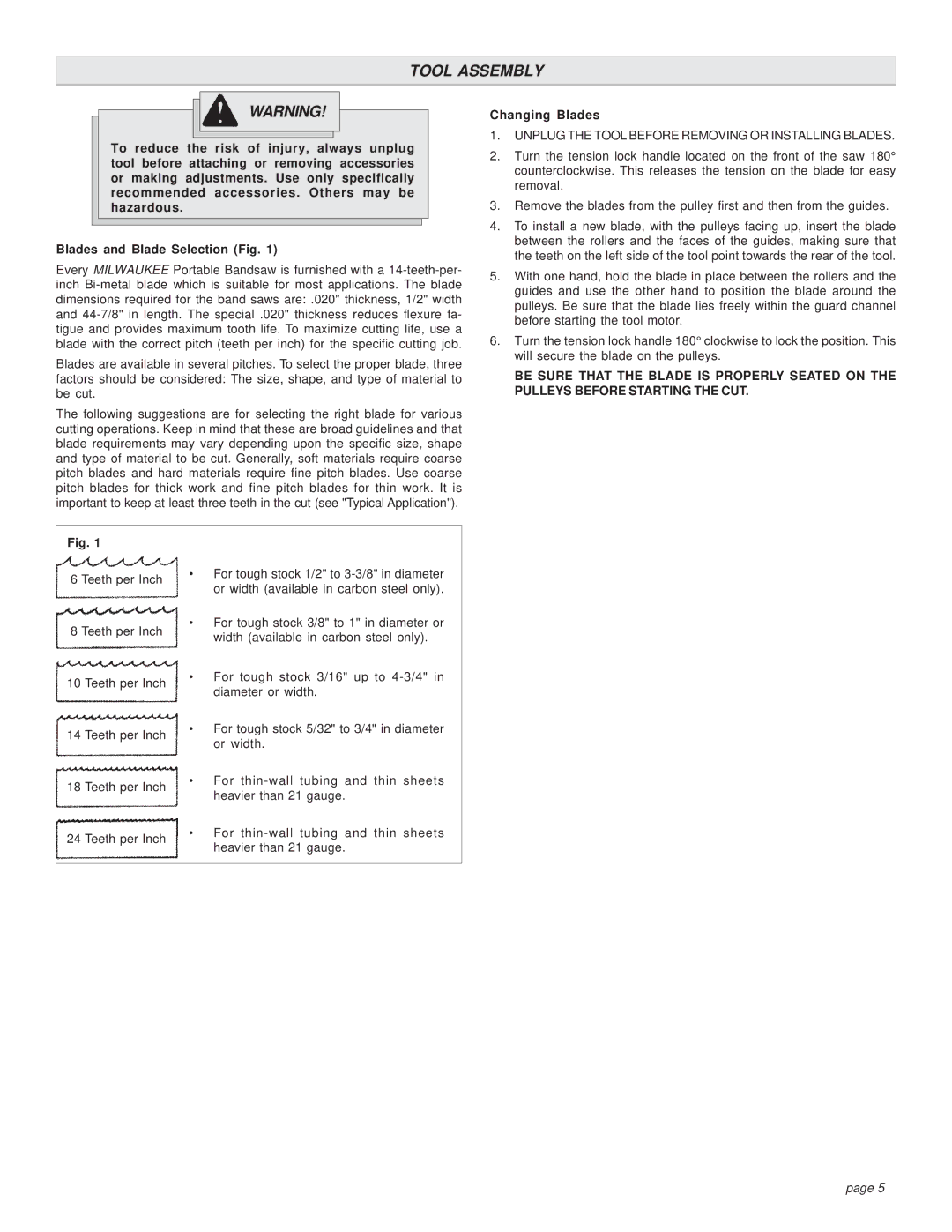
TOOL ASSEMBLY
WARNING!
To reduce the risk of injury, always unplug tool before attaching or removing accessories or making adjustments. Use only specifically recommended accessories. Others may be hazardous.
Blades and Blade Selection (Fig. 1)
Every MILWAUKEE Portable Bandsaw is furnished with a
Blades are available in several pitches. To select the proper blade, three factors should be considered: The size, shape, and type of material to be cut.
The following suggestions are for selecting the right blade for various cutting operations. Keep in mind that these are broad guidelines and that blade requirements may vary depending upon the specific size, shape and type of material to be cut. Generally, soft materials require coarse pitch blades and hard materials require fine pitch blades. Use coarse pitch blades for thick work and fine pitch blades for thin work. It is important to keep at least three teeth in the cut (see "Typical Application").
Changing Blades
1.UNPLUG THE TOOL BEFORE REMOVING OR INSTALLING BLADES.
2.Turn the tension lock handle located on the front of the saw 180° counterclockwise. This releases the tension on the blade for easy removal.
3.Remove the blades from the pulley first and then from the guides.
4.To install a new blade, with the pulleys facing up, insert the blade between the rollers and the faces of the guides, making sure that the teeth on the left side of the tool point towards the rear of the tool.
5.With one hand, hold the blade in place between the rollers and the guides and use the other hand to position the blade around the pulleys. Be sure that the blade lies freely within the guard channel before starting the tool motor.
6.Turn the tension lock handle 180° clockwise to lock the position. This will secure the blade on the pulleys.
BE SURE THAT THE BLADE IS PROPERLY SEATED ON THE PULLEYS BEFORE STARTING THE CUT.
Fig. 1 |
|
|
6 Teeth per Inch | • For tough stock 1/2" to | |
| or width (available in carbon steel only). | |
|
| |
8 Teeth per Inch | • For tough stock 3/8" to 1" in diameter or | |
| width (available in carbon steel only). | |
|
| |
10 Teeth per Inch | • | For tough stock 3/16" up to |
| diameter or width. | |
|
| |
14 Teeth per Inch | • For tough stock 5/32" to 3/4" in diameter | |
| or width. | |
|
| |
18 Teeth per Inch | • | For |
| heavier than 21 gauge. | |
|
| |
24 Teeth per Inch | • | For |
| heavier than 21 gauge. | |
|
| |
|
|
|
page 5
